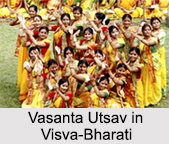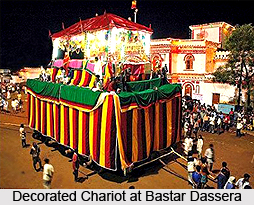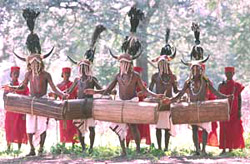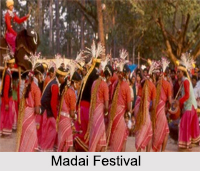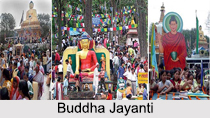 Buddha Jayanti or Buddha Purnima is one of the major festivals in the Vaisakha month, which marks the birth anniversary of Gautama Buddha, the founder of Buddhism. It is believed that Gautama Buddha was born in Lumbini in modern-day Nepal, in the year 623 B.C and died at the age of eighty in B.C. 480. The name given to him by his parents was Siddharth. Siddharth was the only son of Shuddhodhan, the King of Kapilavastu. It was prophesied by the royal astrologer that the child would become either a famous emperor or a world-renowned ascetic.
Buddha Jayanti or Buddha Purnima is one of the major festivals in the Vaisakha month, which marks the birth anniversary of Gautama Buddha, the founder of Buddhism. It is believed that Gautama Buddha was born in Lumbini in modern-day Nepal, in the year 623 B.C and died at the age of eighty in B.C. 480. The name given to him by his parents was Siddharth. Siddharth was the only son of Shuddhodhan, the King of Kapilavastu. It was prophesied by the royal astrologer that the child would become either a famous emperor or a world-renowned ascetic.
History of Buddha Jayanti
Gautama Buddha was a spiritual teacher in India. Buddha was an influential spiritual teacher during and after his lifetime. Many Buddhists see him as the "Supreme Buddha". Festivals to honour Buddha were held for numerous centuries. The decision to celebrate Buddha Jayanti as Buddha`s birthday was formalized at the first conference of the World Fellowship of Buddhists. The date was fixed as the day of the full moon in May. It was on Buddha Purnima that he attained enlightenment. Under Emperor Ashoka, Buddhism spread from India to other nations. The public holiday for Buddha purnima in India was initiated by Bhimrao Ramji Ambedkar when he was the minister of social justice.
Significance of Buddha Jayanti
Buddha Jayanti or Buddha Purnima is celebrated mainly in India, Nepal and Bangladesh. Gautam Buddha is considered as one of the greatest religious leaders. Also known as the `guiding light of Asia`, his message for harmony captured the hearts and minds of millions of devotees. In India, Gautama Buddha is considered as the eight incarnation of Lord Vishnu. It is believed that Gautama Buddha achieved enlightenment and "nirvana" (salvation) on the same day.
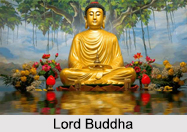 Teachings of Buddha
Teachings of Buddha
Gautam Buddha was the founder of Buddhism. Though he was born as a prince, he realized that the reason of his survival was to convey words of wisdom to his people and to teach them the significance of "karma" and "dharma".
Celebrations of Buddha
India is the land where Buddha attained enlightenment (nirvana) at Bodhgaya and established Buddhism. Buddha spent majority of his life in current day India. Some of the holiest sites associated with Buddha`s life include Bodhgaya, Sarnath, Sravasti and Rajgir and Kushinagar.
Devotees visit temples, light candles and incense sticks, pray and present sweets with fruits before the statue of Lord Buddha. Sermons on the life and teachings of Buddha are held and attended by devotees in big numbers. People generally dress in white and give out "kheer" as according to Buddhist tradition, on this day a woman named "Sujata" had offered Buddha a bowl of milk porridge. Only vegetarian food is savoured on this fortunate day, with forbidding hot spices like onions, garlic, chives and scallions among others. The food may differ with the festival of the celebration in different areas by different divisions. In India, a large fair is held in Sarnath, Uttar Pradesh, where Buddha delivered his first sermon after attaining enlightenment. The relics of the Buddha are taken out for public display in a procession.

